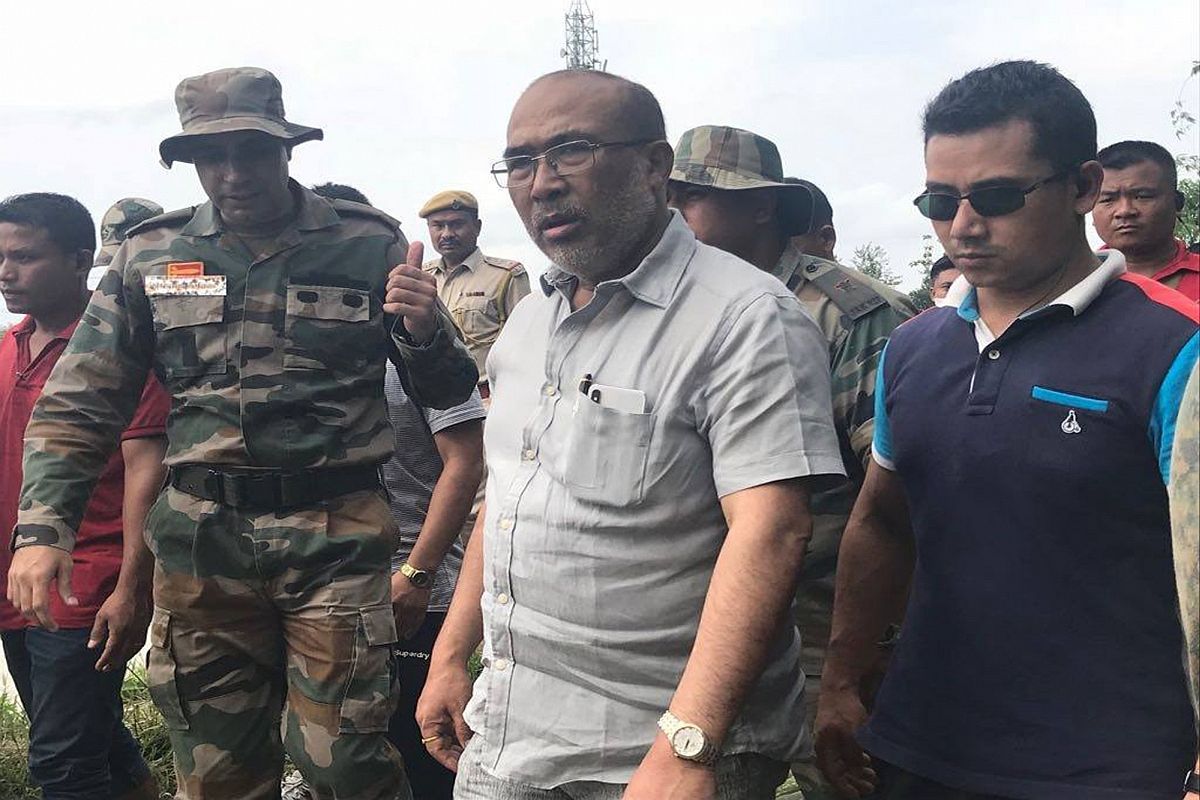Wayanad Lok Sabha polls: BJP demands rejection of Priyanka’s nomination papers
BJP's Kerala general secretary MT Ramesh said Priyanka had concealed her shares in the AJL company and her husband Robert Vadra's property details.
It will take some time to pan out whether an alternative government will be formed or the state will see an early election, or perhaps President’s rule.

Manipur Chief Minister N Biren Singh. (Photo: IANS)
Manipur, a state in Northeast India, entered another phase of political crisis when nine legislators from the ruling National Democratic Alliance (NDA), including three from the Bharatiya Janata Party (BJP), resigned on June 17. The political drama unfolded just two days before the crucial Rajya Sabha election where both Congress and BJP fielded one candidate each for the lone seat.
After three years into the coalition government, the state is headed to another level of political uncertainty. It will take some time to pan out whether an alternative government will be formed or the state will see an early election, or perhaps President’s rule. Whatever route the state is headed, it is important to understand the causes of the crisis.
The turn of events was not surprising given the brewing tensions between and within parties since the formation of the BJP-led government in 2017. While it is not unprecedented, it was intriguing that a party which garnered the single- largest seats did not or could not form the government. In the 2017 election, the Congress won 28 seats and the BJP won 21 seats in the 60- seat state assembly.
Advertisement
While the primary goal of politicians and political parties is power and authority, such desire and ambition sometimes can go beyond the point of breaching party principles and ethics. With the support of other parties, and aided by the BJP government at the Centre, the BJP under the leadership of Nongthombam Biren managed to form a coalition government.
The ascendancy of BJP government was also partly due to lack of party cohesion within the Congress, which ruled the state in the preceding 15 years from 2002 to 2017. Eight Congress MLAs, instead of choosing to play an effective role of opposition party in the state assembly, decided to support the BJP-led government. Of these, one was disqualified in late March this year and seven others are awaiting their fate.
The Manipur High Court has restrained the seven MLAs who left Congress to join the BJP from entering the legislative assembly till further orders. The relationship between members of the coalition parties has been through rough patches for quite some time now. Last year, dissidents within the coalition government called for the ouster and replacement of the chief minister.
In June last year, Biren divested his deputy Joykumar of the finance portfolio and BJP minister Thongam Biswajit Singh of the power and public works portfolio on the grounds that there was an overdraft of over 250 crores that pushed the Reserve Bank of India to instruct the State Bank of India to stop payments. Soon after withdrawing his NPP’s support for the BJP-led government on June 17, Joykumar told the media that they will move a noconfidence motion against the chief minister and try to form a new government.
By now it is clear that political instability in the state is largely due to lack of party discipline and loyalty among elected members, as well as the unwillingness to assume the role of an effective and robust opposition in the assembly. If the disqualification cases of the defecting legislators are upheld, it can possibly serve as a deterrence for the future.
It is important that all incumbent and future leaders realize that they are entrusted by the electorates to work in the interest of the people whom they represent, and not dwell on issues that can impede the progress of their constituencies and the state. This is even more so important as the state sees the surge of positive cases of coronavirus which has forced the state to request the Union government to stop all flights for 10 days from June 19 to 28 to clear a backlog of Covid-19 tests of incoming passengers.
The state has seen the rise of Covid-19 cases since the government allowed people to return home last month. One major accusation against Chief Minister Biren has been his alleged one-man style of managing state affairs without taking allies on board. While this may be true, his government has also implemented some good initiatives, including holding of cabinet meetings in the hill districts in an attempt to bridge the perennial gap between the peoples of the hill and valley.
If the BJP government fails to secure enough votes to survive, the next likely chief minister is the leader of the main opposition Congress party, Okram Ibobi Singh, who had held the position for three consecutive terms. It could be a challenge and difficult task for Ibobi to please his coalition partners, given the fact that he had no prior experience of managing a coalition government during his 15-year reign.
Among others, he must learn to adapt and maneuver between different parties and personalities. Ibobi or his nominee( s) must try to as well or better than Biren. More interestingly, if the ongoing political crisis brings an end to the BJP-led government and the formation of a Congress-led government, it will be the only state in the Northeast region which the Congress rules.
(The writer is Assistant Dean and Executive Director at the Center for Southeast Asian Studies (CSEAS), Jindal School of International Affairs, O.P. Jindal Global University)
Advertisement